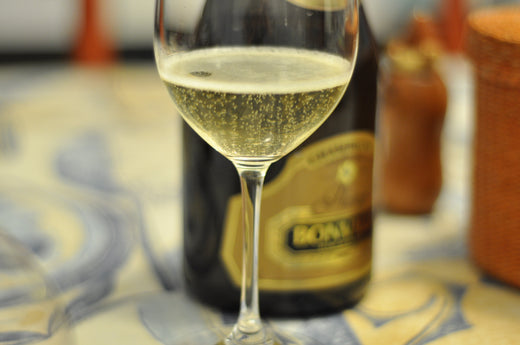In times when so many products are dubbed artisanal, when authenticity is a prized characteristic for many upscale goods and a heart-warming origin story all part of the pitch to ever more ‘conscious consumers’, it would be surprising if such a luxury product as champagne would escape the same buzz. Enter, finding growing resonance over the last two decades, an interest in what are sometimes dubbed ‘grower’ champagnes. Some say they’re the next big thing in champagne.
These are the ‘recoltants manipulants’ or ‘RM’ as they’re designated on their bottles - indicating that at least 95% of the grapes used were grown on one estate. And, beyond those, even single vintage, single vineyard, single variety, low intervention wines, often fashionably natural or organic in their approach in ways more common in Burgundy but rare in Champagne. Typically they’re from small independent producers, maybe just one or two generations old who, being young, are evangelists for new, more radical methods.
Unbolstered by much in the way of reserves, these grower champagnes are unique and reflective of place, its very localised soil and climate - to the point that a single bottle may be a true one-off. If, for the global champagne brands, the Grand Marques, expert blending to achieve a lack of bottle variation - and so brand loyalty - is deliberate, the growers offer more of the unique experience. That’s why names the likes of Vilmart & Cie, Eglu Ouriet, Vilmart, Ulysee Collin, Jacques Selosse, Benoit Marguet, Pierre Paillard, Philipponnat and Champagne Gimonnet - there are many others - have been trumpeted as grower Davids up against these multi-nationals’ Goliaths.
These growers - making “farmer’s fizz” as it’s been dubbed - arguably offer much better value for money too. According to wine merchant Mark Savage of Savage Wines - one of the few specialists in grower champagnes - the grower market is now at the stage where it’s finding more widespread acceptance, while the dominance of the Grand Marques and their centuries of tradition is less certain. For one, attitudes have changed. But while they may be a minority, Savage argues that there are increasing numbers of people “who aren’t obsessed with the Grand Marques, who recognise that these big names have huge marketing power - the strongest in the entire wine industry - but that maintaining that requires drinkers to pay a hefty premium”.
In other words, to keep those bottles of Moet or Veuve Clicquot or Dom Perignon popping around the world takes a lot of advertising, the cost of which is passed on to you. With a grower champagne, you’re more likely to be paying for just what’s oil the bottle - and that is something to celebrate.


